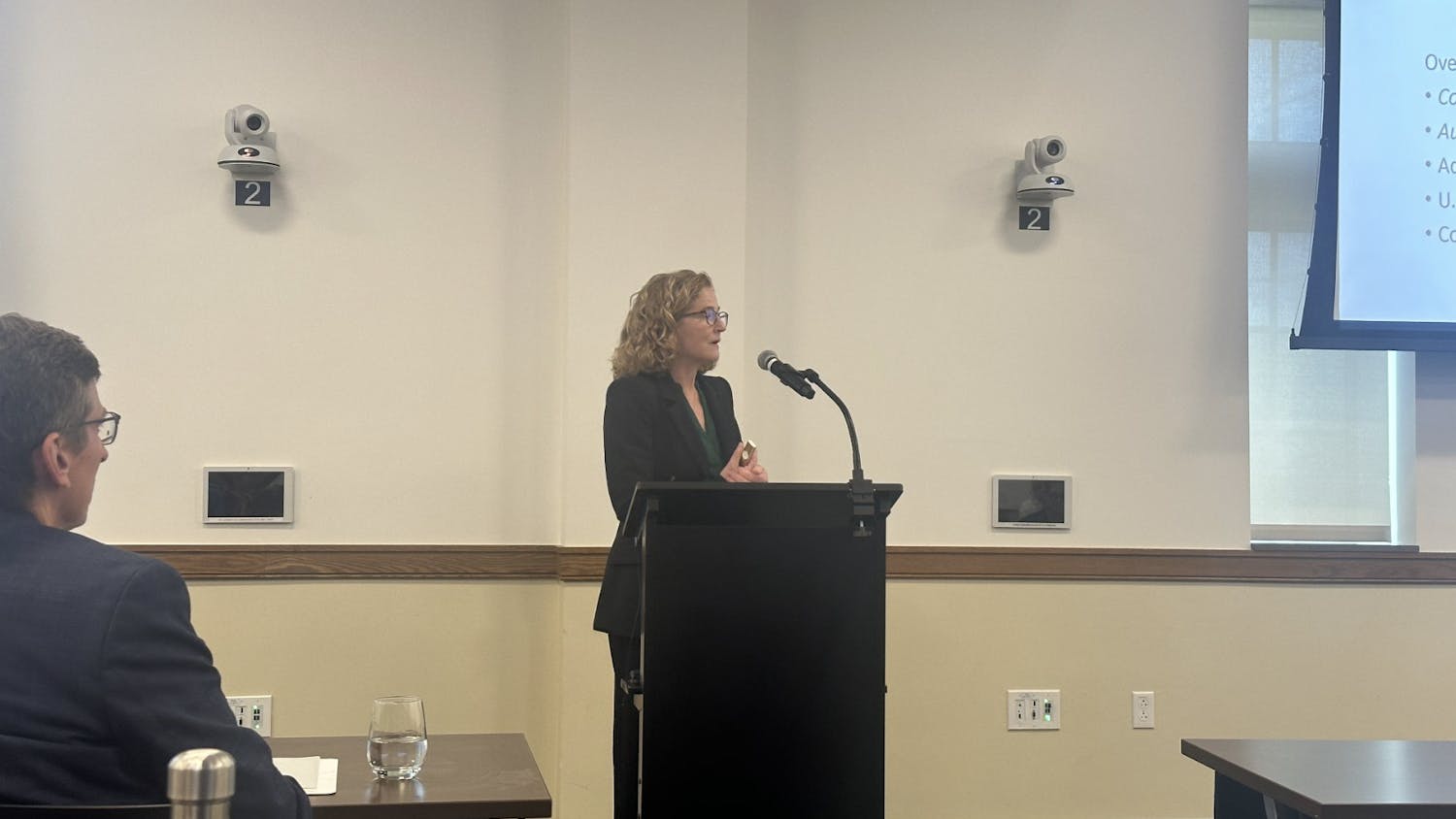Notre Dame's undergraduate tuition continues to rise for the 2012-2013 academic year by 3.8 percent to $42,971, a University press release stated Feb. 9.
The rate of increase is the same as the previous two years, which was the lowest since 1960, the release stated. Combined with average room and board rates of $11,934, total student charges will be $54,905.
Executive Vice President John Affleck-Graves said Notre Dame strives to keep tuition increases down while maintaining Notre Dame's tradition of academic excellence.
"We're about educating people for the rest of their lives, and we just have to think about how we can do that in the best way possible, and try to make it more affordable as possible, but not allow the affordability to compromise the educational experience," Affleck-Graves said.
He said he expects the rate of tuition increase to remain about the same over the next few years.
"I think in the future we're going to continue to see increases in tuition, hopefully the students are getting the value of that," Affleck-Graves said. "But I don't see us getting much below the four percent a year increase."
In a letter to parents and guardians of students returning for the next academic year, University President Fr. John Jenkins said the University recognizes the financial challenges families may be facing and seeks to provide the utmost value for their investments.
"Notre Dame's administration and Trustees continue comprehensive efforts to contain its costs and limit spending in response to the ongoing economic uncertainty that affects many of our Notre Dame families," he wrote. "These financial challenges are not likely to ease soon, nor will our efforts to increase the efficiencies of our operations and the quality of our student experience."
Affleck-Graves said the University's largest source of revenue is tuition and the second largest is payment out of its endowment. The University's endowment has not been as large as past years, he said.
"The endowment has done reasonably well given the economic conditions, but it's still below the level it was in 2008 and 2009, so there's some pressure for us on that source of revenue," he said.
Affleck-Graves said the University's other major sources of revenue include auxiliary operations like the Hammes Notre Dame Bookstore and Food Services. These have also experienced significant pressure in recent years, he said.
"I think generally like the rest of the economy, the University is seeing pressure on all revenue sources and I think that's why we have to increase tuition [but] we try to keep it as moderate as we can," he said.
He said more than 50 percent of the University's expenses tie to salaries and benefits. But Notre Dame is not willing to trade exceptional faculty for a lower cost of tuition, Affleck-Graves said.
"We want to give our students … really great faculty, and that means we have to pay them commensurate with what they're worth, and so that's a big factor," he said.
Notre Dame is working to reduce costs on the administrative and operational sides of the University, Affleck-Graves said. He said reducing energy use is one way to drive down utilities costs.
"It's responsible on both the cost side and the environment side if we're all careful about the amount of electricity and utilities we consume," Affleck-Graves said. "And the student body's been reasonably good … in helping us … you know, switching off computers at night [and] turning off lights."
As a need-blind University, Affleck-Graves said Notre Dame has offered more financial aid since the 2008 economic downturn. About 48 percent of Notre Dame students are currently on some form of financial aid.
Affleck-Graves said the issue of college affordability in the United States is more complex than the media portrays it. Some families have voiced anxieties about the rising cost of a Notre Dame education.
"We understand especially in this economy it's very hard for some parents, that's why we do the financial aid … but there are parents who don't get the financial aid who also need help," he said.
He said a Notre Dame education comes with both academic and personal benefits, and the University will not compromise those benefits simply to reduce cost.
"The problem is, [parents] send us the children because they think we can give a high quality education, we can give a good residence life experience, so if we don't do that just because we want to save some money, in the end I think we're shortchanging the students," Affleck-Graves said. "And that's the last thing we want to do."









